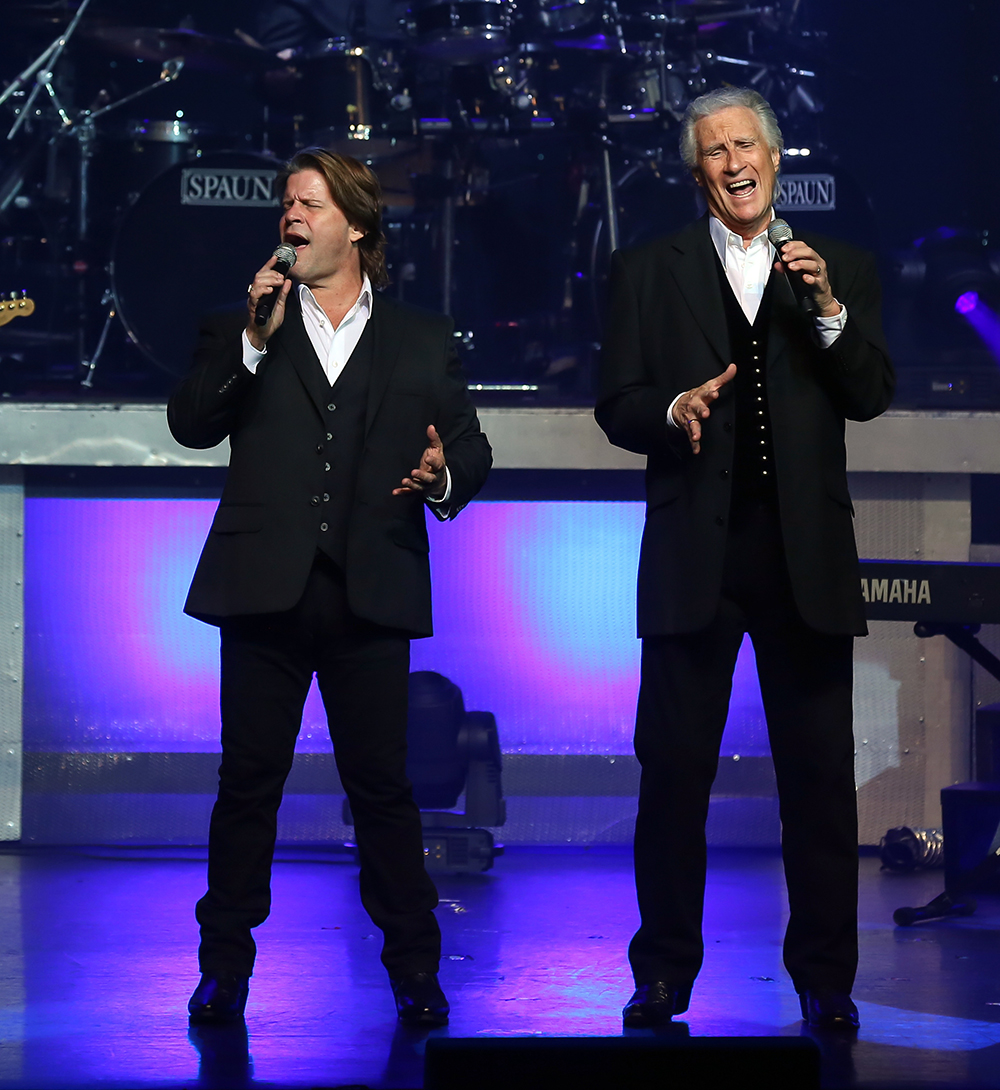It was on an August night in 1964 when Memphian Bob Tucker, leading the Bill Black’s Combo as they toured with The Beatles, heard that a singing duo who’d also been opening the shows was leaving the tour. “I walked up to them,” Tucker recalled recently, “and I said, ‘Wait a minute! Hold it! This is the biggest tour in the history of show business,’ which it was at the time. ‘If you quit now, you’re finished! You’ll be blackballed. You’re through!’
“They didn’t care,” Tucker continued. “‘We’re going to California!’ they said. ‘We’re gonna be on a TV show out there and we’re gonna record some more!’ So they left. They went out to California and got on Shindig!, and then cut the most programmed record in the history of music. Later they said, ‘We’re sure glad we didn’t take your advice!’”
That singing duo was The Righteous Brothers, of course. After leaving the tour, they joined Phil Spector at Gold Star Studios and recorded the era-defining “You’ve Lost That Lovin’ Feelin’.” Today, the duo’s distinctive bass/baritone singer, Bill Medley, recalls, “Well, Bob Tucker was certainly more right than wrong. Leaving The Beatles’ tour wasn’t the smartest thing in the world. It turned out to be, but it shouldn’t have been.”
Ultimately, the iconic status of The Righteous Brothers today has borne out the good fortune of their decision. “It was definitely eye-opening,” Medley recalls, “and we learned a lot from Phil Spector. He was brilliant. It was the first time we’d ever worked with that kind of an orchestra, doing that kind of song. So it was brand-new for us. It took us away from what we were doing, which was all rock-and-roll and rhythm and blues.”
Medley credits that rock-and-roll and rhythm and blues with getting him into music in the first place. He and Bobby Hatfield, his partner in The Righteous Brothers until his untimely death in 2003, were just “two punks from Orange County,” Medley says. “It was just bean fields back then, and it was a real white area, so it was strange for The Righteous Brothers to come out of Orange County. But we would tune in to the Black station out of L.A. that played all rhythm and blues. That’s the only stuff Bobby and I listened to.”
And though their second album, released well before they connected with Phil Spector, was titled Some Blue-Eyed Soul, that was not a common term or genre label at the time. But The Righteous Brothers came to define it. “When they started playing ‘You’ve Lost that Lovin’ Feelin’’ on Black stations, a disk jockey out of Philadelphia started calling us the blue-eyed soul brothers. He was trying to hip his audience to the fact that we were white. Since the ’40s or whatever, a Black guy would refer to a white guy as a blue-eye, and this DJ was playing all Black music.”
Like the Mar-Keys out of Memphis, the group’s sound alone was breaking down racial barriers and expectations. And for Medley, that was a great thing. “It was a very cool time to be around,” he says. “It was wonderful.”
Through all of it, Memphis loomed large in Medley’s mind. “I love Memphis. It’s got a great history,” he says. He and Elvis Presley became friends even before the Spector years, a bond that strengthened when Medley and Presley both performed in Las Vegas. Then “in the ’70s, I did a solo album for about three weeks with Chips Moman in Memphis. I’d record every day, and every night I’d have dinner with Elvis at Graceland. We had a great time.”
All of which makes The Righteous Brothers’ appearance at the Graceland Soundstage on July 30th a kind of homecoming for Medley. Since 2016, when he recruited his old friend Bucky Heard to fill Hatfield’s shoes, the duo has been touring again to great acclaim. Beyond the group’s classic tracks, Medley also sings his Grammy-winning 1987 hit with Jennifer Warnes, “(I’ve Had) The Time of My Life,” as a duet with his daughter. “Oddly enough,” he says, “when we recorded it, my wife was just having our daughter McKenna, and now McKenna sings it with me on stage. She’s very, very good. So I’m a very happy man: 81 years old, and still singing songs I recorded at 25!”
